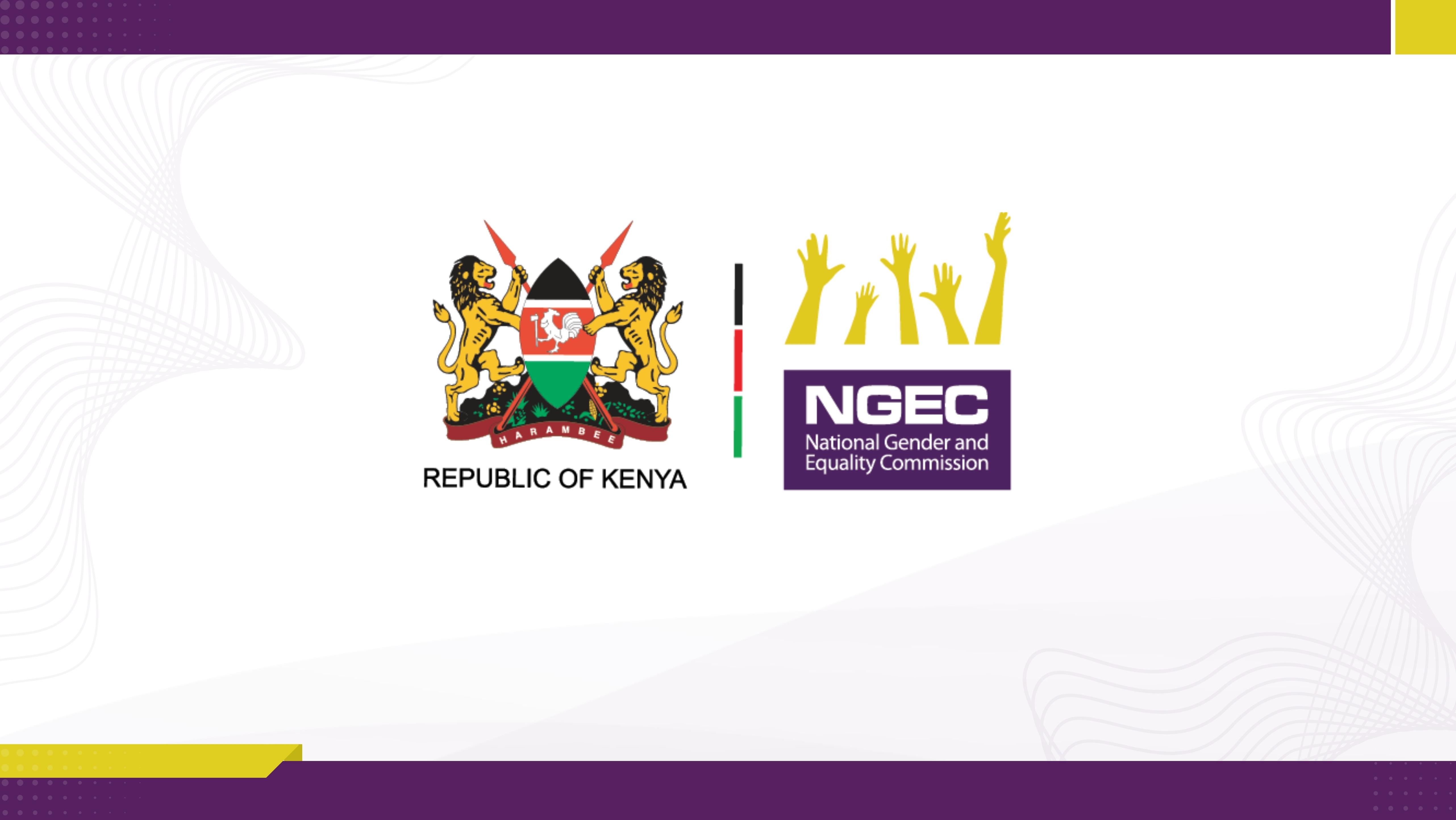Dignity Behind Bars: NGEC Champions Justice, Protection and Healing for Incarcerated Mothers in Isiolo
In a landmark visit, the National Gender and Equality Commission (NGEC) reaffirmed its commitment to protecting the rights of women —especially those society often forgets: incarcerated mothers serving time with their children.
Led by Vice Chairperson Thomas Koyier and accompanied by Commissioner Mbithuka Nzomo and CEO Dr. Purity Ngina, the Commission's delegation toured the Isiolo Women’s Prison, engaging directly with the women behind the prison walls. The visit, supported by Mr. Nahashon Lotaruk, NGEC’s Head of Isiolo Regional Office, offered a rare window into the layered realities facing women inmates in Kenya’s northern frontier.
They were warmly received by the Officer in Charge, Ms. Lydia Mwangi, who opened the gates not only to the prison facility but to the pressing issues within.
Isiolo Women’s Prison is home to 35 inmates and 5 minors— children too young to be separated from their mothers. Yet, the crimes that landed most of these women behind bars, as Ms. Mwangi explained, are rooted in a deeper injustice: the chronic disempowerment of women through Gender-Based Violence (GBV). "Many of these women are here because they were forced to survive,” Mwangi stated. “GBV tears families apart. Once a woman is chased away by her partner, with no livelihood, no shelter, and children to feed, survival sometimes leads to petty offenses—shoplifting, trespass, loitering.”
Her call was clear: GBV is not just a private matter—it is a criminal pipeline. One that leads women from their homes to holding cells, and eventually to prison.
The Officer in Charge decried the lack of basic necessities at the prison. From sanitary pads to bathing soap, the dignity of women behind bars is left to the mercy of well-wishers. In response, the Commission donated an assortment of personal care items, a gesture Ms. Mwangi hailed as timely and meaningful.
“These donations will not just meet a need— they will restore dignity,” she said, visibly moved.
However, she made a broader plea: a national policy framework is urgently needed to address the care of minors incarcerated with their mothers, and the reintegration of women postincarceration.
“Some women prefer staying in prison even after serving their sentence,” she revealed, “because outside these walls lies a society unwilling to forgive or accept them. We need reintegration policies that work.”
For the Commission, this visit was not merely symbolic—it was a hands-on mission aligned with its constitutional mandate to safeguard the rights of all, including the marginalized and incarcerated.
“This visit has allowed us to hear the unheard,” said Vice Chairperson Koyier. “Our mission is not just about equality on paper—it’s about restoring dignity where it has been stripped away.”
In line with the Commission’s growing focus on restorative justice, Dr. Ngina underscored the need for coordinated interagency support, including psychosocial care, access to justice services, and community awareness to stem the tide of GBV and promote rehabilitation.
“We must shift our national lens—from punitive to restorative,” Dr. Ngina stated. “Women in prisons are not criminals—they are survivors of a broken system.”
In a symbolic close to the day, the NGEC team, together with staff from the National Drought Management Authority and Kenya Forest Service, participated in a tree-planting exercise within the prison compound.
Each seedling planted became more than a tree —it stood for healing, growth, and a future rooted in equity and protection.
NGEC’s visit to Isiolo Women’s Prison is part of a larger, strategic effort to ensure no woman is left behind in Kenya’s justice system. With increasing focus on prison reform, genderresponsive policies, and the urgent need to address GBV at its roots, the Commission is sending a clear message: justice must be inclusive, compassionate, and transformative.


Comments